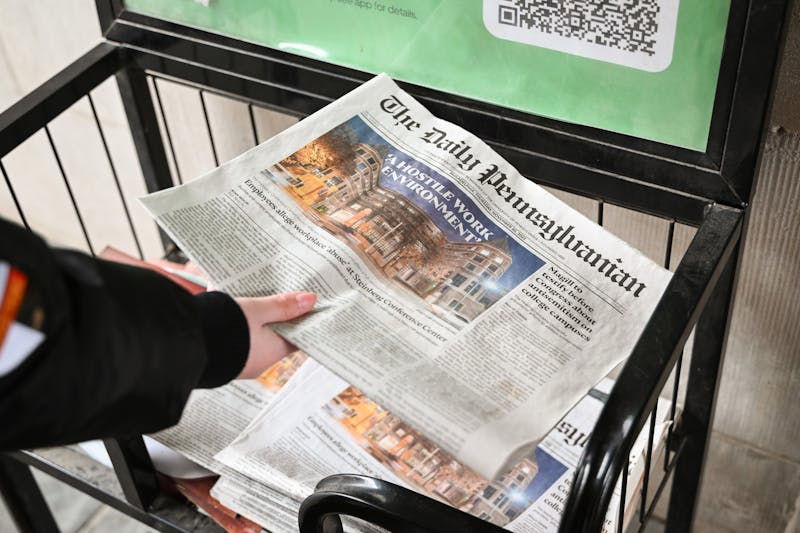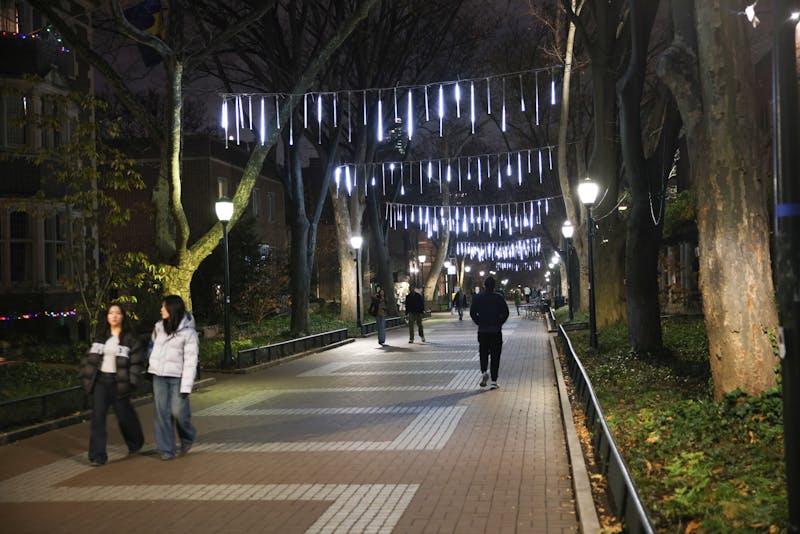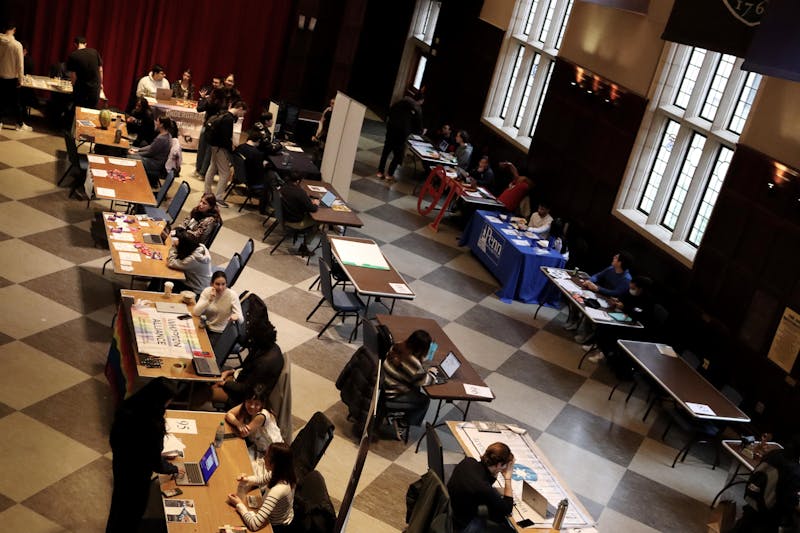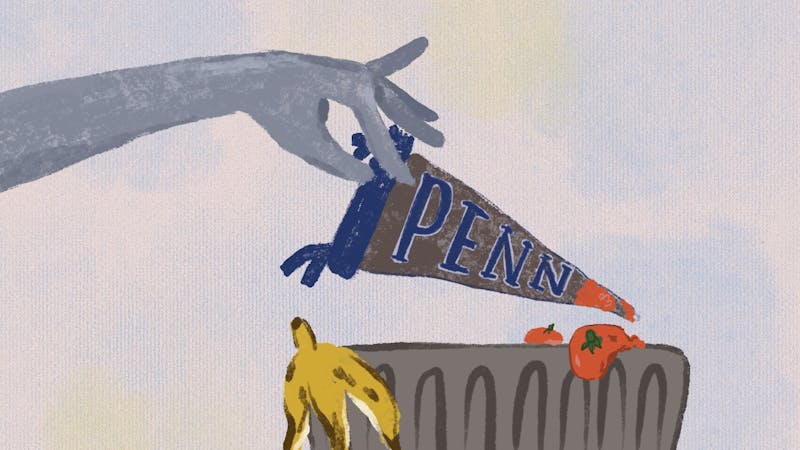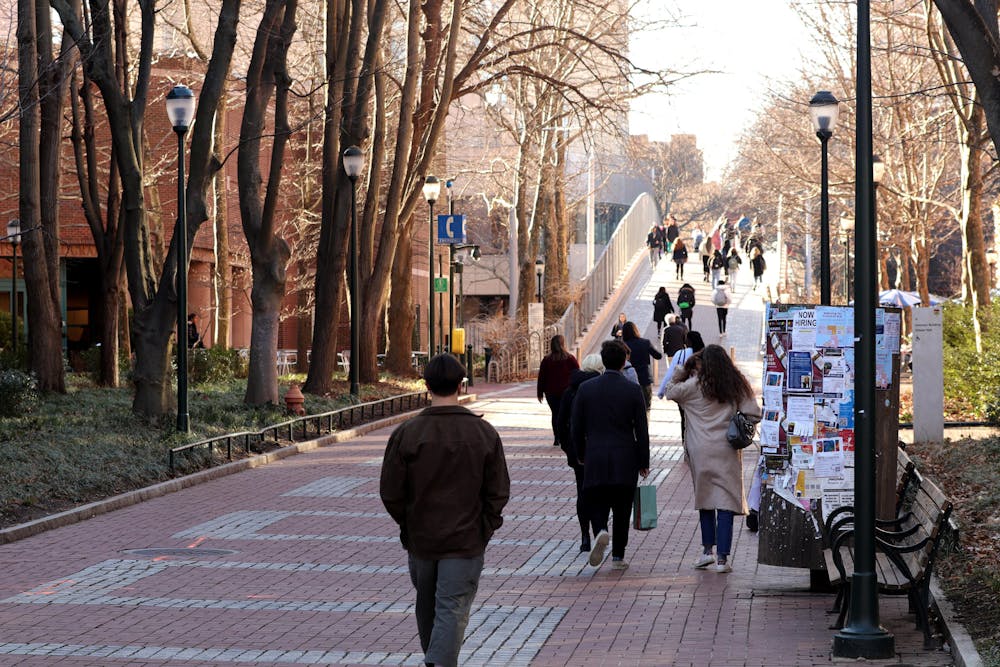
We all know the typical “types” of high schoolers, the different clichés: Where are my nerds at? But, another attribute of student groups that has become increasingly relevant in the 21st century United States is the diverse ethnic makeup of its population. And, frankly, do we as a campus mirror all that comes with that national trend of diversity?
Think of the friends with whom you often hang out. Then, ask those friends with whom they usually go out. Finally, think of the groups you are a part of, the extracurriculars in which you partake. Notice a pattern?
“[D]espite increased opportunity to live and work in mixed-race settings, Americans remain racially segregated in their friendship patterns,” a study published by the National Institutes of Health found. “Spatial racism, cultural encapsulation, and personal choice are contributing factors for patterns of same-race friendships.”
This pattern seems to reflect the divisions present in Penn’s social scene as well. Despite coming from all sorts of backgrounds across the world, the University’s students appear to have unconsciously adopted a policy of self segregation. In other words, we like to “stick to our own” by socializing with others to whom we relate to on a cultural, ethnic, or religious basis. So, regardless of Penn’s efforts to integrate people of differing experiences and beliefs, there still remains a degree of resistance by individuals themselves to cross those racial or cultural lines.
As a result, the potential for diversity of thought is threatened. A narrow mindset develops within these groups that students pledge to, and they effectively act as echo chambers that exacerbate already crippling political polarization. We relate to each other less, rely on our “own” more, and become less tolerant of the views, and thus experiences, of those who do not necessarily look, think, or speak like us.
This kind of thinking — whether manifested in the form of race, religion, or otherwise — has led to serious tension at times and enabled a distorted view of certain communities and how they experience Penn. I attribute part of that thinking not to the identity groups we are a part of, but to how much we value them over who we are as individuals.
Homogenous communities definitely have their place in the college experience: They help ease our transition when we first arrive at Penn, and their role cannot be replaced. I say this as an international student myself, who had a hard time acclimating to an entirely different culture and, most radically, diet. Nonetheless, we should treat these organizations as an aid to finding belonging on campus, not a substitute for individual thought and expression.
However, none of this means individuals can’t agree or always need to separate themselves from the group. The use of a large, collective voice can benefit our campus much more than we realize. What is important to note is that there lies a clear distinction between acknowledging the views of others and forcing ourselves to accept those views for the sake of conformity.
There is nothing wrong with disagreeing with the majority, whether it is one against two or one against a nation (though some may try to tell you otherwise). As long as you are respectful and driven by a desire to learn rather than defend, there are no limits on what perspective you may question. So, challenge your beliefs, reevaluate your viewpoint, challenge that of others (no matter who they are), and then reevaluate yourself again. It’ll be hard at first, to express your precise, genuine thoughts without fear. But, remember that you’re not alone (I struggle sometimes myself) and that it’s a process you won’t always get right.
The hardest part of breaking out of groupthink, after realizing it, is talking about it. My advice? Take the plunge and never look back. The next time you are in a group and the majority agrees with an idea you don’t like, let it be known. Talk about it and explain why you think the way you do. Don’t worry if some get offended or others simply do not agree; it is normal and, in fact, expected.
Never forget that disputes you engage in are an opportunity, not a challenge, and our differences are enlightening, not threatening. Only then will we begin to understand and appreciate each other more as unique actors in a truly historic community.
ZAID ALSUBAIEI is a College first year studying economics from Al-Khobar, Saudi Arabia. His email address is zaidsub@sas.upenn.edu.
The Daily Pennsylvanian is an independent, student-run newspaper. Please consider making a donation to support the coverage that shapes the University. Your generosity ensures a future of strong journalism at Penn.
Donate







